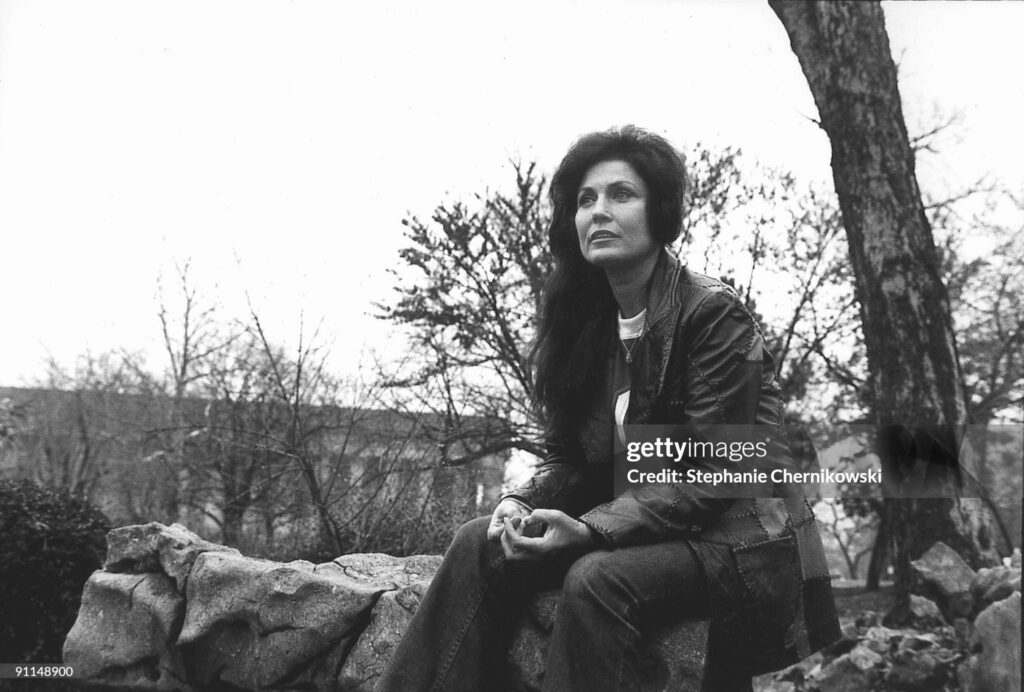
Empowerment and Resilience in the Face of Adversity
In the annals of country music, few voices resonate with the raw authenticity and heartfelt emotion that Loretta Lynn brought to her craft. Her song, “You Ain’t Woman Enough (To Take My Man),” released in 1966, stands as a testament to her indomitable spirit and her ability to capture the complexities of human relationships with piercing clarity. This track, featured on the album You Ain’t Woman Enough, swiftly climbed the charts, securing a spot at number two on the Billboard Hot Country Singles chart. It wasn’t just a hit; it was an anthem that spoke directly to the hearts of women across America and beyond.
The story behind this iconic song is as compelling as its melody. Loretta Lynn, already a formidable figure in country music by the mid-1960s, drew inspiration for this song from a real-life encounter. As the tale goes, during one of her performances, a woman approached Lynn backstage, distraught over another woman’s attempts to steal her husband. Moved by the woman’s plight, Loretta penned “You Ain’t Woman Enough” with characteristic empathy and insight. This anecdote underscores Lynn’s unique gift for transforming personal stories into universal experiences, a hallmark of her songwriting prowess.
At its core, “You Ain’t Woman Enough” is a song about empowerment and resilience. It addresses themes of love, betrayal, and strength, resonating deeply with anyone who has faced challenges in their relationships. With its straightforward lyrics and powerful vocal delivery, the song embodies a defiant stance against infidelity and insecurity. Loretta’s confident assertion that no one can take what is rightfully hers is both empowering and reassuring, offering listeners a sense of solidarity and strength.
The impact of “You Ain’t Woman Enough” extends beyond its chart success. It became an anthem for women who felt marginalized or undervalued in their personal lives. In an era when traditional gender roles were being questioned and redefined, Loretta Lynn’s music provided a voice for those navigating these societal shifts. Her ability to articulate the struggles and triumphs of everyday women endeared her to audiences who saw their own lives reflected in her songs.
Loretta’s delivery of “You Ain’t Woman Enough” is imbued with genuine emotion and conviction. Her voice, both tender and formidable, conveys a spectrum of feelings that range from vulnerability to unwavering confidence. This duality is part of what makes the song so relatable; it acknowledges the pain of potential loss while simultaneously asserting control over one’s destiny.
Moreover, the legacy of “You Ain’t Woman Enough” is evident in its enduring popularity. It has been covered by numerous artists over the years, each bringing their own interpretation to its timeless message. The song’s influence can be seen in the work of contemporary female artists who continue to explore themes of empowerment and self-assurance in their music.
For many older listeners, “You Ain’t Woman Enough” serves as a poignant reminder of a bygone era when country music was a primary means of storytelling and emotional expression. The song evokes memories of simpler times when music was intertwined with daily life, providing comfort and companionship through life’s ups and downs.
In conclusion, Loretta Lynn’s “You Ain’t Woman Enough (To Take My Man)” remains a powerful testament to the enduring strength and resilience found within all individuals facing adversity. Its place in country music history is not merely due to its chart success but because it encapsulates universal truths about love and self-worth that continue to resonate across generations. Through her heartfelt lyrics and compelling performances, Loretta Lynn has left an indelible mark on music history, inspiring countless listeners with her unwavering spirit and timeless wisdom.